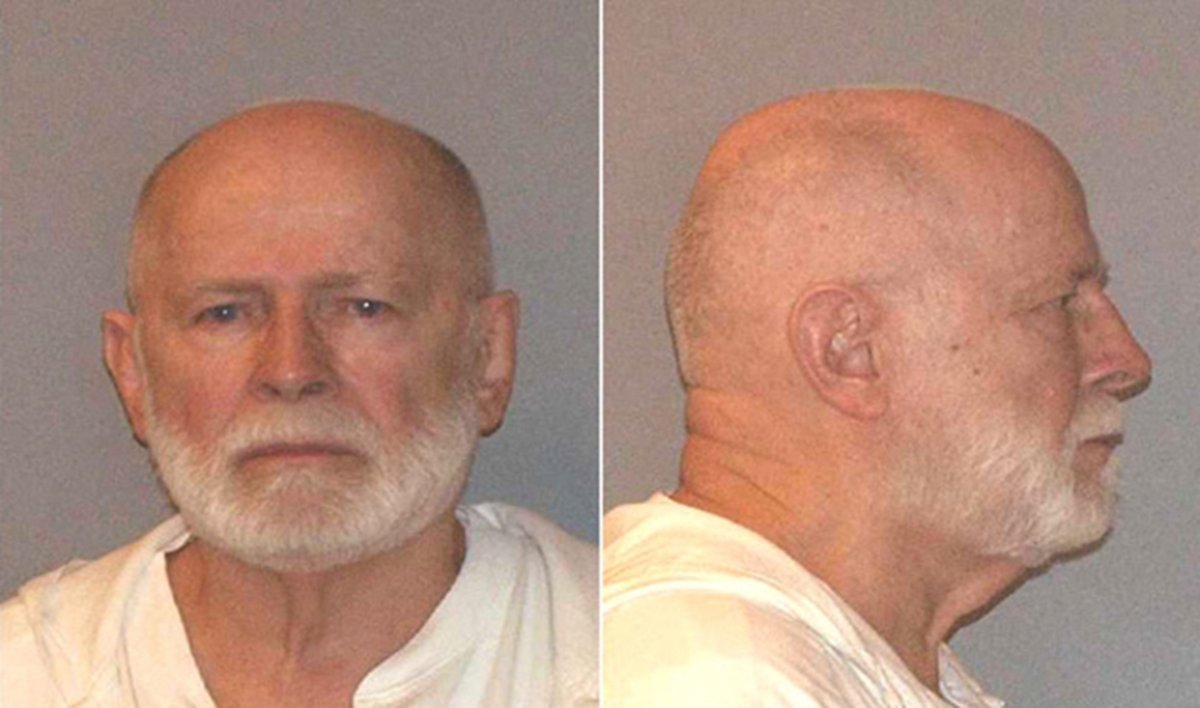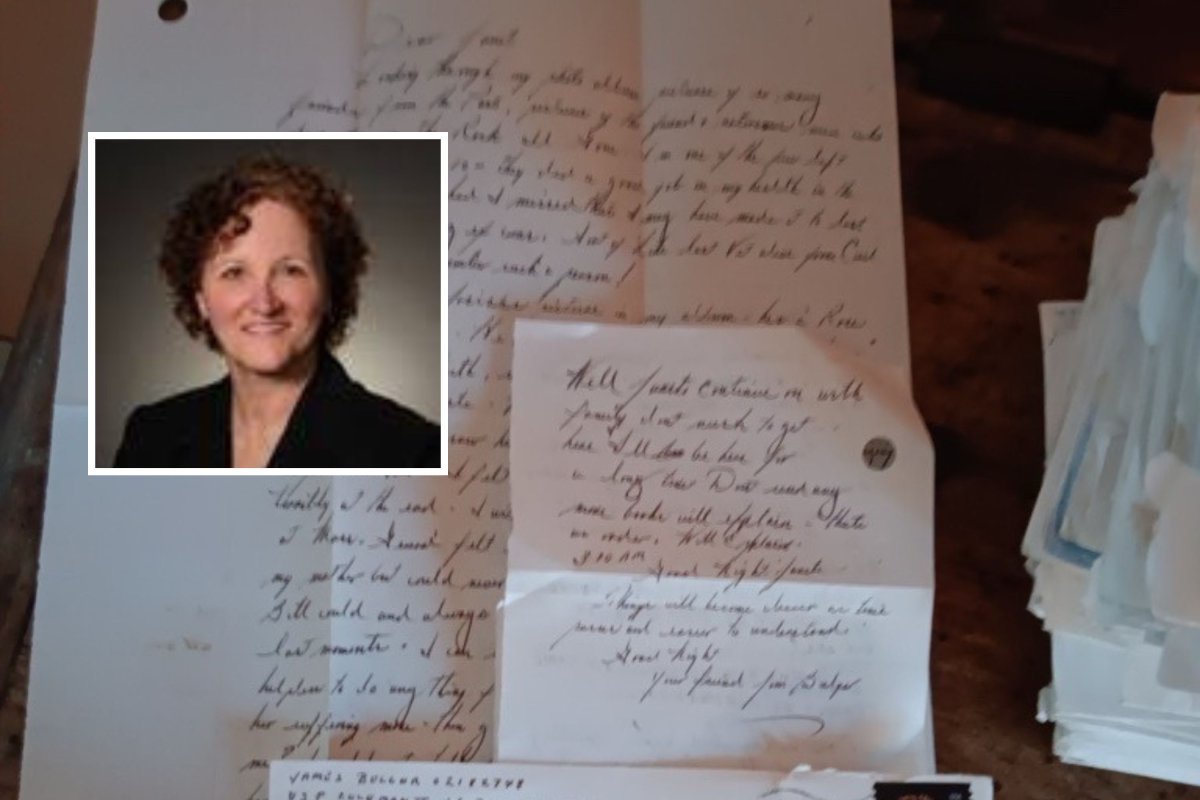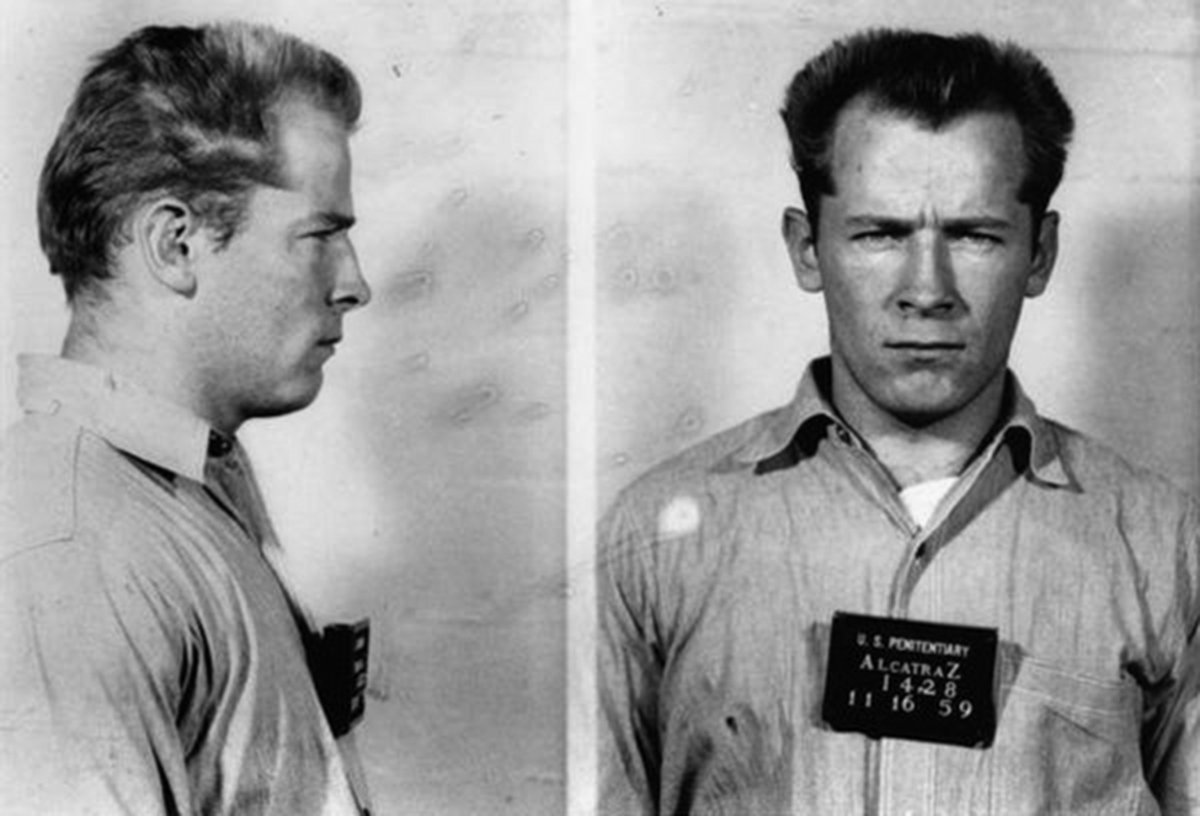Janet Uhlar, a juror who convicted infamous Boston gangster James “Whitey” Bulger, formed a surprising five-year friendship with the mobster. Uhlar, now seeing Bulger in a different light, insists he wasn’t the monster everyone thought.
“We became friends,” Uhlar told Newsweek. “There was a very, very human side of him. He was not a monster like they have depicted. He was not a sociopath.”
The two exchanged over 70 letters starting in 2013, where Bulger detailed his crimes, family life, and love for animals. During their face-to-face meetings, Uhlar even witnessed Bulger playing peekaboo with children visiting their fathers in prison.

Janet Uhlar wrote has over 70 letters from James “Whitey” Bulger. The two discussed his crimes, family life and his interests.
Janet Uhlar
Bulger, who led a crew of Irish gangsters in Boston during the ’70s and ’80s, served as an FBI informant against his gang’s rivals. In 1994, after being tipped off by his FBI handler about an impending indictment, Bulger fled. He was one of America’s most wanted fugitives for over 16 years before being captured at the age of 81 in Santa Monica, California.
The mobster was portrayed by Hollywood superstar Johnny Depp in the biographical crime drama “Black Mass.” Bulger was also the inspiration for Martin Scorsese’s 2006 crime thriller “The Departed.”
Bulger was killed just hours after he was transferred to USP Hazelton in West Virginia from where he was previously held in Florida. He was serving a life sentence for 11 murders and other crimes.
The three men charged with killing Bulger in 2018 have reached plea deals with prosecutors, according to papers filed in court May 13.
But to Uhlar, Bulger was more than just his mobster persona.
“I saw a side of him that, other than his family, people didn’t see,” Uhlar said.
When Uhlar’s son died while the two were corresponding, Bulger wrote her “the most compassionate letters.”
Bulger never denied his criminality in his letters or the 15-hours the two spent in person together, said Uhlar, who lives in Massachusetts.
“He always told me always, ‘Don’t ever forget I’m a criminal,'” Uhlar said. “He never denied the murders.”




James ‘Whitey’ Bulger mugshot in 2011.
Getty
Letters reveal Bulger’s experiences with CIA project
Bulger’s letters also detailed his experiences with the top-secret CIA Project MK-Ultra, Uhlar said. The experiments were meant to assess the potential use of lysergic acid diethylamide (LSD) and other drugs for mind control and information gathering during the height of the Cold War.
“It’s all about interrogations and controlling people,” Dr. Colin Ross, who founded an institute for psychological trauma, told Newsweek. “The contractor massively violated the ethics of psychology.”
Ross, who has conducted extensive research into different CIA mind-control experiments, said after moving to Texas to practice psychiatry he started hearing stories from patients that they weren’t only abused by family members but that they were taken into governmental labs.
His 2019 book, “The CIA Doctors: Human Rights Violations by American Psychiatrists” delves into the unethical medical practices under the MK-Ultra program. He studied 15,000 pages of documents from the CIA and describes the extent the project had on people’s identities and memories.
Project MK-Ultra was broken into three parts: research, chemical procurement, and mind control projects, according to Ross.
“These kinds of things are all real and documented,” Ross aid. “It’s not just some dumb science fiction… It’s possible that sort of by accident that Whitey Bulger’s experience with LSD set him off on the wrong path.”
The program had little oversight, and CIA agents admitted they created a party-like atmosphere, according to Ross.




Janet Uhlar wrote has over 70 letters from James “Whitey” Bulger. The two discussed his crimes, family life and his interests.
Janet Uhlar
Uhlar said Bulger, who was taking part in an experiment on whooping cough, was asked if he wanted to volunteer to find a cure for schizophrenia in the late ’50s. He told Uhlar he thought he was “helping society.”
He received “high doses of LSD three times a week for 15 months,” Uhlar said. “They would ask him repetitious questions he said…The questions were asked over and over and over for 15 months, and he recalled that one of them was ‘Have you every killed anyone?’ and the other was ‘Would you ever kill anyone?'”
In a Senate hearing in 1977, Stanfield Turner, the former director of the CIA, testified that the agency was trying to make people violent or homicidal. Prior to the project, which Bulger volunteered for, he had not committed murder, Uhlar said.
“It really kind of resonated with me and with Bulger,” Uhlar said. “He had no idea.”
Ted Kaczynski, who is better known as the Unabomber, and cult leader Charles Manson were both potentially connected to the experiment as well, Ross said. He said military members were also participants.
“Perhaps they did create a murderer,” Uhlar said. “Personally, I don’t think they want us to know about this.”




Boston gangster James ‘Whitey’ Bulger, Jr. poses for a mugshot on his arrival at the Federal Penitentiary at Alcatraz on November 16, 1959 in San Francisco, California.
Getty
The effects of MK-Ultra lasted Bulger’s lifetime.
“He would hallucinate every night for the last 60 years of his life for about two hours when he would fall into a deep sleep,” Uhlar said. “He would fall out of bed, even prior to prison, but he would have a carpeted floor or whatever.”
Uhlar, a pediatric and geriatric nurse in Massachusetts, said the effects of the Project MK-Ultra were significant on Bulger.
“What I am upset about is that he had gone through this experiment by the CIA when he was only 26 years old,” she said. “We’re talking about a brain that may not have been completely developed yet.”
Uhlar said she did a visual assessment of Bulger and saw he was “in very, very poor health” when he was transferred. He would need multiple surgeries to correct his hip damage, she said.
He had experienced eight heart attacks in prison, Uhlar said. Bulger was hospitalized for three of the attacks and was provided nitroglycerin in time for the other five.
Yet the Bureau of Prisons announced Bulger’s health “had suddenly improved,” Uhlar said. He was then transferred to a West Virginia prison, where he was found beaten to death in his cell.
‘I just want to get the truth out’
The Justice Department found that Bulger’s death was a result of management failures, including over 100 officials finding out about Bulger’s move in advance and a lack of formal process for deciding which unit to house inmates at the prison. The inspector found no evidence of “malicious intent” by bureau employees.
“That was a blatant lie,” she said. “I mean, the man was dying. He thought the next heart attack was going to kill him. Why would they lie? Why not just send him to where he’s supposed to go and let him die?”
Uhlar found out about Bulger’s death while she was conducting a home visit with an elderly patient, who was originally from South Boston, and received a call from her sister about the news.
Uhlar said the sisters were upset as well, since “they viewed him as someone who helped those in need in the neighborhood,” even though they knew he was also a criminal.
“I felt pretty awful,” Uhlar said. “I was pretty shocked…I just want to get the truth out and that the narrative was created without anybody going to him to ask questions.”
Uncommon Knowledge
Newsweek is committed to challenging conventional wisdom and finding connections in the search for common ground.
Newsweek is committed to challenging conventional wisdom and finding connections in the search for common ground.
This post was originally published on this site be sure to check out more of their content.









